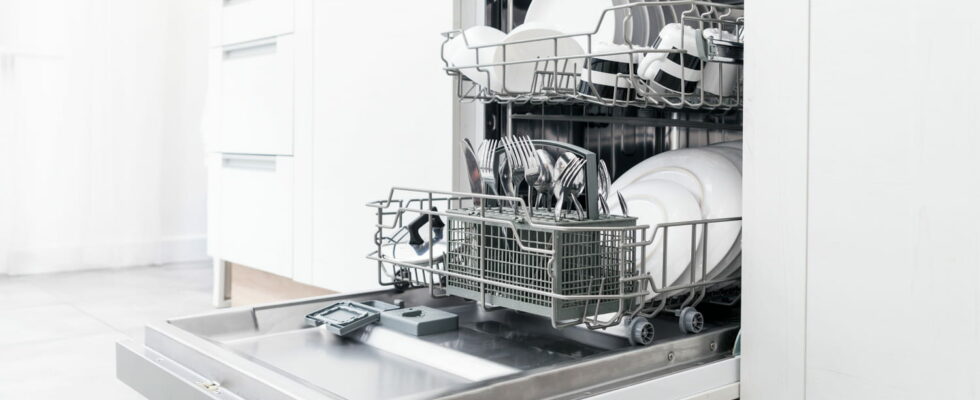Forget this bad habit. This gesture, as harmless as it may seem, is an expensive and unnecessary error.
The dishwasher is an ally of everyday life, and it simplifies life to all those who have it. It saves time, water and energy. Because yes, contrary to popular belief, using a dishwasher allows you to save both water and electricity compared to hand washing, provided you use it well.
Unfortunately, many have a well-anchored reflex: rinse the plates, dishes, bowls and cutlery under the tap before placing them in the dishwasher. It seems logical, right? After all, we want the dishes impeccable and avoid any residue. Not only does it waste water, but above all, it is strictly useless and could even have the opposite effect as that desired.
Modern dishwashers are surprisingly intelligent machines. Unlike their predecessors, they are designed to detect the dirt level on dishes through sophisticated sensors. These sensors automatically adjust the duration and intensity of washing. If you rinse your dishes before loading it, you send a false signal to the machine: it “thinks” that your dishes is already clean and reduces its washing cycle. Result ? Invisible residues of fat or food may stay, and you will get dishes that are not as clean as you hoped.

In addition, dishwasher detergents contain enzymes specially designed to tackle the remains of food. These enzymes need organic matter to act effectively. By rinsing the dishes, you deprive the detergents of their target, which can compromise their effectiveness.
Another important point: waste of water. Did you know that a dishwasher consumes on average 9 to 12 liters of water per cycle, while an open tap can waste up to 6 liters of water per minute? Rinse your plates for only two minutes could use as much water as a full cycle of dishwasher. In other words, you consume additional water without any added value.
By abandoning the prior rinsing, you will save hundreds, even thousands of liters of water per year. This savings will be reflected directly on your water bill, which is excellent news for your portfolio – and for the environment.
Here’s how to properly prepare your dishes (without rinsing it) before putting it in the dishwasher. Use a spatula or fork to scrape the leftover food in the trash or compost. Then load the dishes correctly. Place the plates, bowls and pans so that the water can circulate well. Also remember to clean the filter regularly so that washing is effective.
